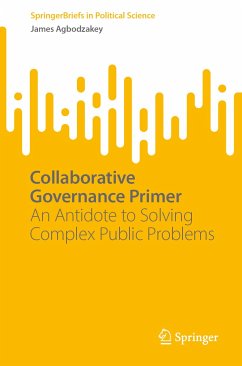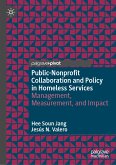The Brief approaches the topic with the following questions in mind: (1) Does collaborative governance provide a viable alternative to complex public problem solving compared to the traditional top-down bureaucratic approach?; (2) Is cross-sector stakeholders' involvement in collaborative governance a viable pathway forward in the administration of peoples' affairs?; (3) Can societal well-being be better promoted with non-mandated collaborative governance?; (4) Would the representation and participation of target populations in policy decision making and/or implementation generate constructive and sustainable solutions for societal benefits? ; and (5) Is collaborative governance the future of public management/administration?
Providing much needed insights for theory, policy, and praxis, this volume will be of interest to academics and students of public affairs, public management, governance, public health, public policy, and disaster and emergency management, as well as practitioners and policy makers in related fields.
Dieser Download kann aus rechtlichen Gründen nur mit Rechnungsadresse in A, B, BG, CY, CZ, D, DK, EW, E, FIN, F, GR, HR, H, IRL, I, LT, L, LR, M, NL, PL, P, R, S, SLO, SK ausgeliefert werden.









